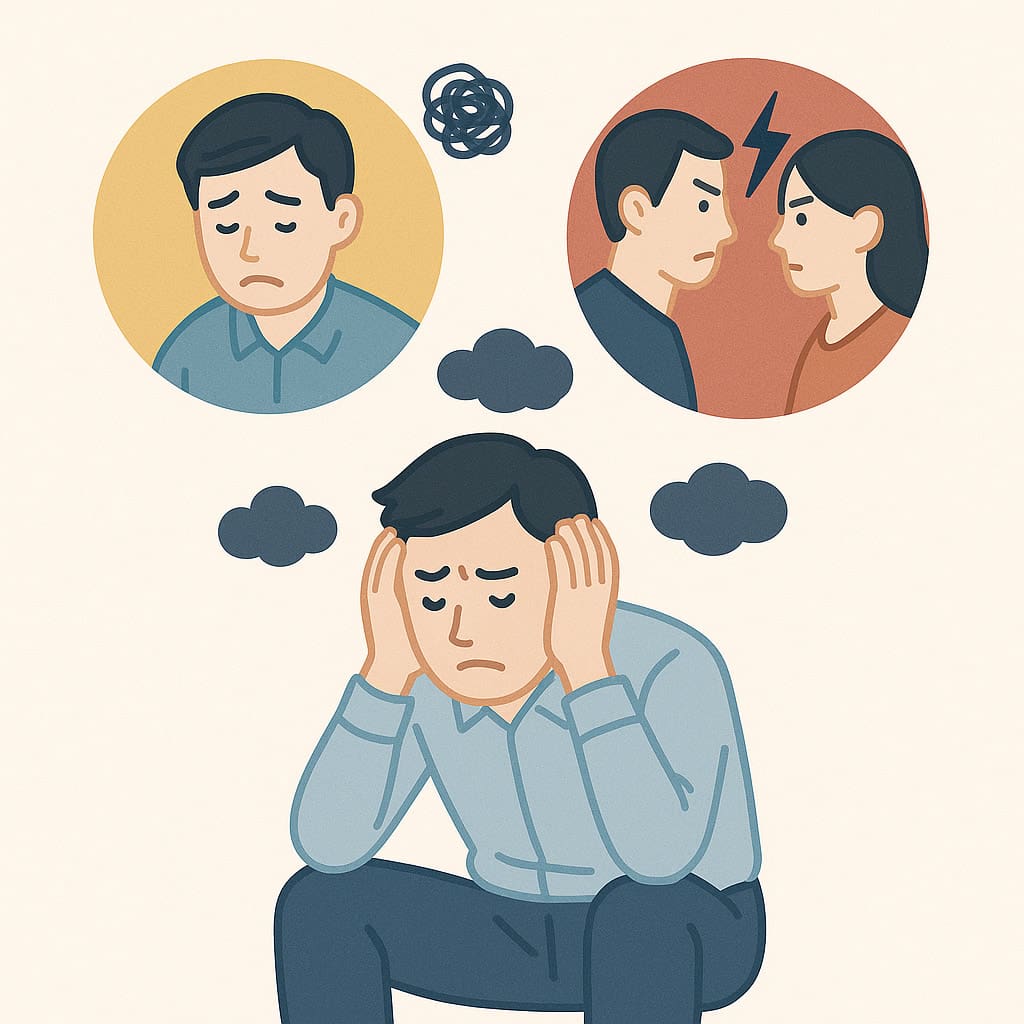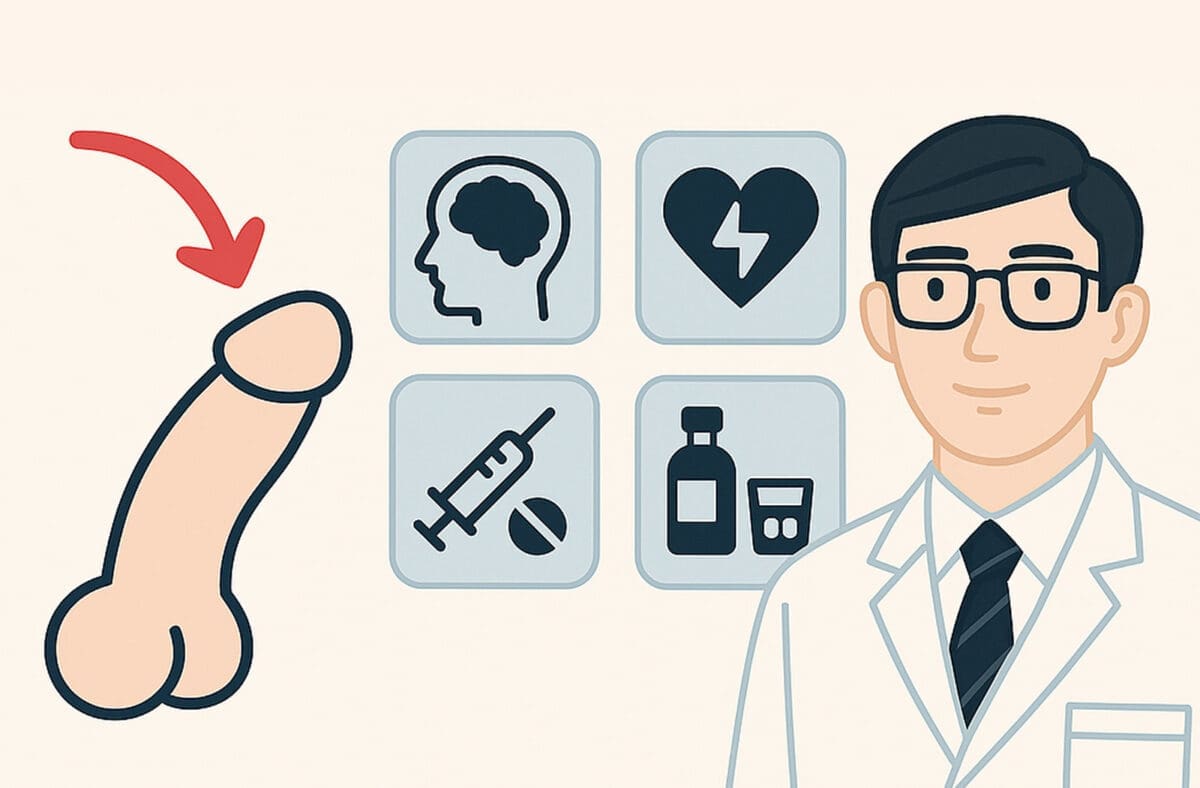Have you ever felt like you’re “not performing” during intimate moments? You’re not alone. Erectile Dysfunction (ED) is a common health concern that affects men of all ages. It’s not just a simple sexual issue—it’s often the result of a combination of psychological and physical causes.
As a board-certified urologist, I’m here to help you understand the most common causes of erectile dysfunction, and more importantly, how to manage and treat this condition that many men find difficult to talk about.

Psychological Causes: Stress Can Bring You Down—Literally
In many younger men, ED often stems from psychological triggers. These include:
| Possible Cause | Description |
|---|---|
| Stress & Anxiety | Stress from work, family, or daily life can interfere with sexual function. |
| Depression | ED is common among patients with depression, either due to the condition itself or its medication. |
| Relationship Issues | Poor communication, lack of trust, or mismatched sexual expectations with a partner can also contribute. |

Physical Causes: It’s Not Just Aging—Chronic Conditions Matter
ED can also be an early warning sign of underlying physical health problems. Here are the key physical contributors:
| Possible Cause | Description |
|---|---|
| Vascular Disease | Conditions like atherosclerosis, venous leakage, or aging of penile tissues can reduce blood flow and cause ED. |
| Structural Abnormalities | Conditions like Peyronie’s disease, penile curvature, or hypospadias may interfere with erection. |
| Neurological Disorders | ED can result from spinal cord injuries, stroke, Parkinson’s disease, or pelvic surgery that affects nerve function. |
| Hormonal Imbalance | Low testosterone levels can reduce libido and make it harder to achieve or maintain an erection. |
| Medication Side Effects | Common culprits include medications for high blood pressure, depression, and anxiety. |
| Penile or Pelvic Trauma | Injuries like penile fracture or pelvic fractures can damage nerves or erectile tissue. |
| Chronic Conditions | Diabetes, hypertension, metabolic syndrome, kidney or liver disease, sleep apnea, and chronic fatigue syndrome can all contribute. |
| Lifestyle Factors | Smoking, excessive alcohol intake, lack of exercise, and obesity are major risk factors for ED. |

What Should You Do About ED? Don’t Worry—Help Is Available
The most important thing is not to suffer in silence. Seek professional help—you don’t have to deal with this alone. At my clinic, we provide a personalized assessment and treatment plan tailored to each patient’s needs.
Common Treatment Options Include:
- Testosterone replacement therapy
- Low-intensity extracorporeal shockwave therapy (Li-ESWT)
- Penile venous ligation surgery (to address venous leakage)
- Penile curvature correction surgery
- Penile prosthesis implantation (for severe or unresponsive cases)
Sexual Health Is a Reflection of Your Overall Well-being
Changes in sexual function can be a sign that something deeper is going on with your health. Don’t ignore the signs—your body might be telling you it’s time to pay attention to your overall health.
I’m Dr. Cheng-Hsing Hsieh, a urologist specializing in men’s health. At our clinic, we offer comprehensive care for erectile dysfunction, male menopause, and hormone therapy.
If you have any concerns, book a consultation today. We’re here to help you regain confidence and reclaim your health—with respect and professionalism.


